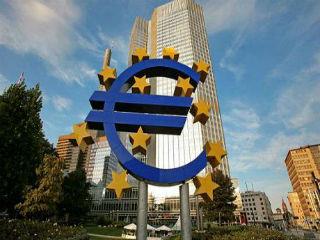The ECB will have to decide how much of each eurozone country’s bonds to buy, a politically tricky task. As a genuine EU institution the ECB offers the usual theatre of differing views and opinions.

Will the European Central Bank (ECB) announce on January 22 that it will start buying large volumes of Eurozone government bonds to further push down interest rates in the eurozone?
Will the European Central Bank (ECB) announce
on January 22 that it will start buying large volumes of Eurozone government
bonds to further push down interest rates in the eurozone?
Such a programme,
called ‘quantitative easing’, is akin to printing money and has been used
during the last few years by the Federal Reserve in the US.
But purchasing government bonds in the
eurozone is much more complex than in the US; the Eurozone has no asset
comparable to the US Treasurer Bonds.
The ECB will have to decide how much of
each eurozone country’s bonds to buy, a politically tricky task. As a genuine EU institution the ECB offers
the usual theatre of differing views and opinions.
Germany has been the
strongest opponent of quantitative easing, fearing that it would wind up
suffering losses if the ECB buys bonds, which weak eurozone governments are
later unable to repay.
This is not an unthinkable scenario as Germany is not alone
in its opinion. A strong supporter of quantitative easing is Italy.
The governor of the Bank of Italy said
recently: ‘… there is a threat of deflation ... purchasing government bonds would
be the most effective tool to combat it’.
Nor is Italy alone in its opinion. In
the meantime consumer prices in the Eurozone fell at an annual rate of 0.2
percent in December, heightening fears that the eurozone could already be
suffering from deflation – a sustained decline in prices that causes people and
companies to delay purchases expecting prices to fall further.
Trying to be a wise man, Benoit Coeuré the
Frenchman on the ECB board said that quantitative easing ‘ should be an initiative to create confidence,
to unite Europe, not to divide Europe’.
He continued, ‘but it’s clear that it is a subject we are regarding with
a lot of attention’.
Only the Greek are
able to understand this, the oracle of Delphi spoke once again.
So what will happen on January 22?






